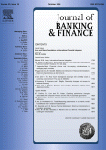 Authors: Santiago Carbó and José M. Liñares
Authors: Santiago Carbó and José M. LiñaresTitle: How effective are rewards programs in promoting payment card usage? Empirical evidence
Source: Journal of Banking and Finance
Abstract: Card issuers have mainly relied on rewards programs as their main strategy to increase usage. However, there is scarce evidence on the effectiveness of these programs. This paper is addressing two topics which could have important managerial and public policy implications: (i) it estimates the impact of rewards on the use of cards and (ii) it quantifies their economic effects in terms of the cash substitution. We find that rewards may significantly modify choice for card payments. Their economic impact also varies significantly across types of rewards and merchant activities. Additionally, rewards seem to be more effective for debit cards.
Recommended citation:
Carbó, S. and J. M. Liñares, 2011. "How effective are rewards programs in promoting payment card usage? Empirical evidence", Journal of Banking and Finance, 35(12), December, pp. 3275-3291.
Further articles






